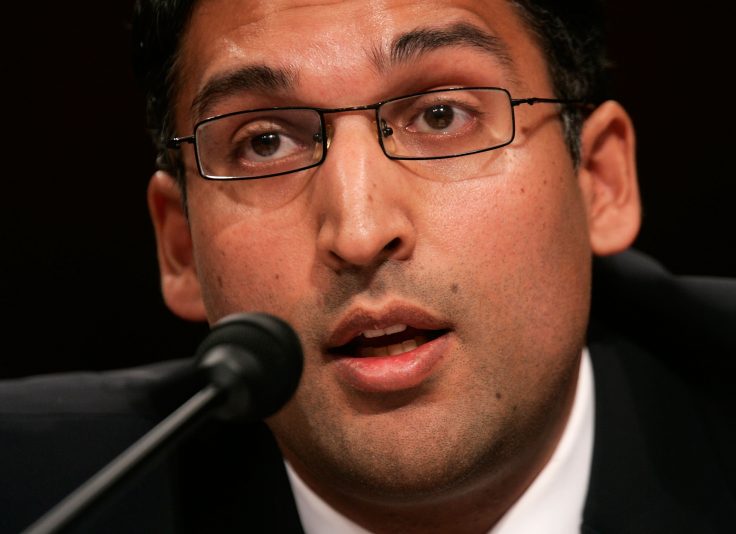Neal Katyal, the progressive lawyer who led the legal fight against the president's travel ban and urged the public to take an unforgiving stance toward those involved with child separation at the U.S. border, appeared in the Supreme Court on Tuesday to defend two corporations accused of abetting child slavery.
In legal papers filed to the Supreme Court, the plaintiffs say Nestlé USA and Cargill knew their West African suppliers used child slaves but bought cocoa from them anyway. Katyal, arguing on behalf of the food giants, said the case should be tossed because U.S. courts have no authority to hear the dispute.
The six unnamed plaintiffs were once child slaves on cocoa plantations in Ivory Coast, having been kidnapped and trafficked from Mali. The plaintiffs say they were held under armed guard in deplorable conditions, beaten, and tortured if they tried to escape.
"From the United States, [Nestlé] had complete control over the farms' labor practices, knew that the farmers they were assisting were using and continued to use forced child labor, and purposefully relied on the enslavement of children to increase profits by ensuring the flow of cheap cocoa," the plaintiffs' filings read.
They also claim that Nestlé cultivated close ties with plantation owners to maintain influence in the region. To do so, they allegedly financed the purchase of farming supplies, made advance payments, and provided plantation owners with personal spending money to secure their loyalty as exclusive suppliers.
The case asks whether the plaintiffs can sue Nestlé and Cargill in an American court under an obscure federal law from 1789 called the Alien Tort Statute. Katyal said U.S. corporations can't be sued under that law. Many on the Court wondered if that went too far.
"Many of your arguments lead to results that are pretty hard to take," Justice Samuel Alito told Katyal. "Suppose a U.S. corporation makes a big show of supporting every cause de jure but then surreptitiously hires agents in Africa to kidnap children and keep them in bondage on a plantation.... You would say that the victims ... should be thrown out of court in the United States, where this corporation is headquartered and does business?"
A second issue is whether the child slavery allegations have a strong enough connection to the United States to move forward in court. Again, Katyal argued no.
"The claim plaintiffs bring alleges something horrific, that locators in Mali sold them as children to an Ivorian farm where overseers forced them to work," Katyal told the justices. "[But] the defendants are not the locators, not the overseers, and not the farm."
The Alien Tort Statute mostly sat dormant until the 1980s, when it became a vehicle for getting human-rights cases into American courts from across the globe. The Supreme Court has gradually closed the door on those cases. In 2013 the Court said the law usually doesn't cover wrongdoing outside the United States, and in 2018 it said the Alien Tort Statute doesn't cover foreign companies.
Among other high-profile impact cases, Katyal led challenges to the Bush administration's military tribunals for Guantanamo Bay detainees and obtained an appointment to the prosecution team in the George Floyd case. Beyond the staid world of appellate advocacy, he contributes regularly to MSNBC, appeared on stage at a Vanity Fair summit with John Legend, and played himself on House of Cards.
I was @VAMNit’s +1. Honored to be in the room where it happened today.
Proud of our friend @neal_katyal. https://t.co/uLENqiYZYj— Lin-Manuel Miranda (@Lin_Manuel) April 25, 2018
In Tuesday's brief, Katyal claimed his clients deplore child labor.
"Nestlé USA has tremendous sympathy for plaintiffs' suffering and unequivocally condemns child slavery. In all its forms. Everywhere," the filing reads.
Katyal did not reply to a request for comment.
The case is No. 19-416 Nestlé USA v. John Doe.
